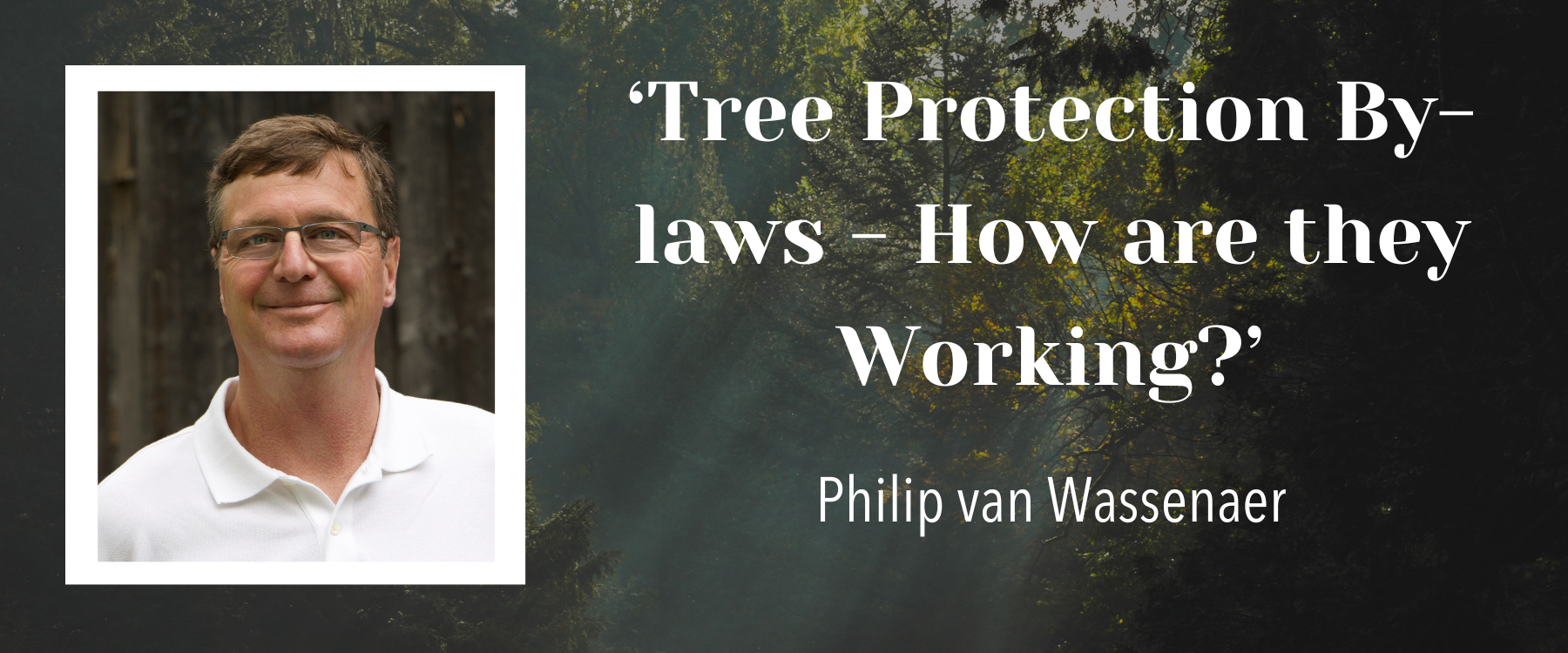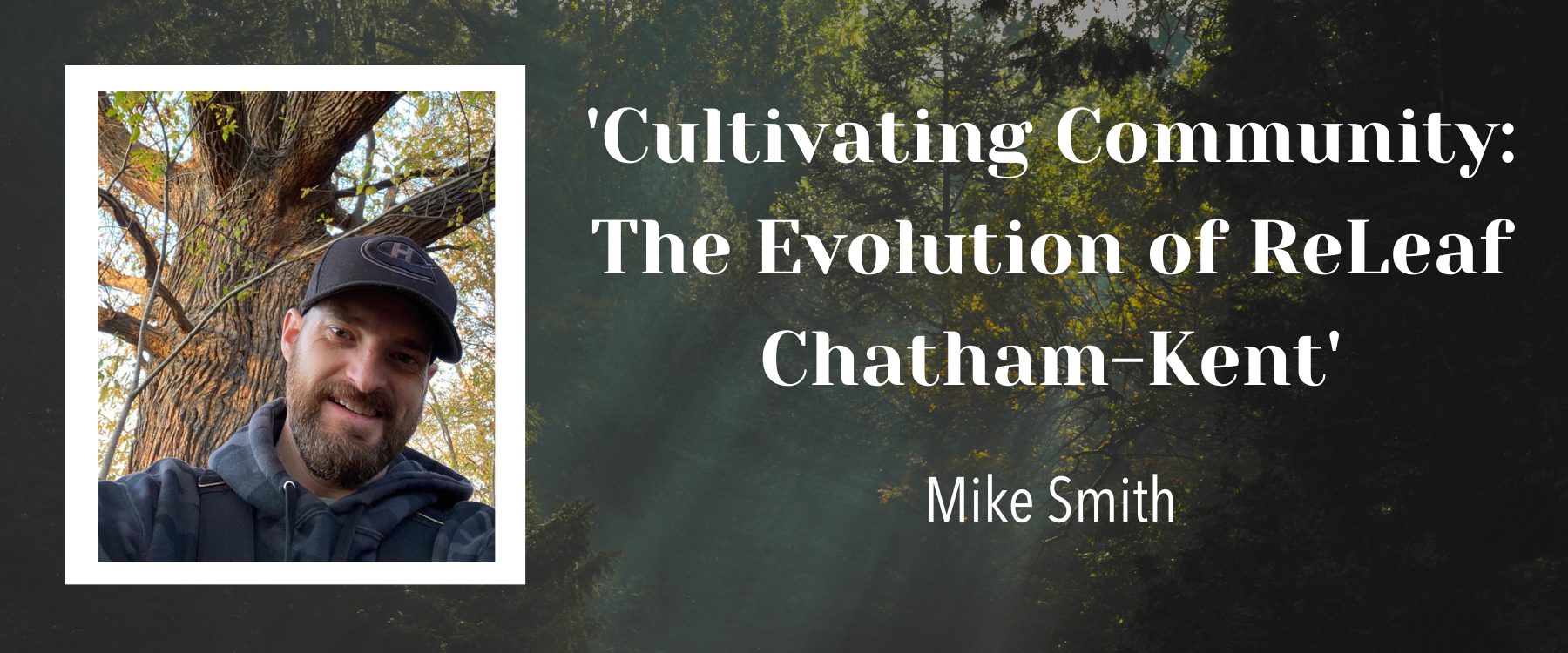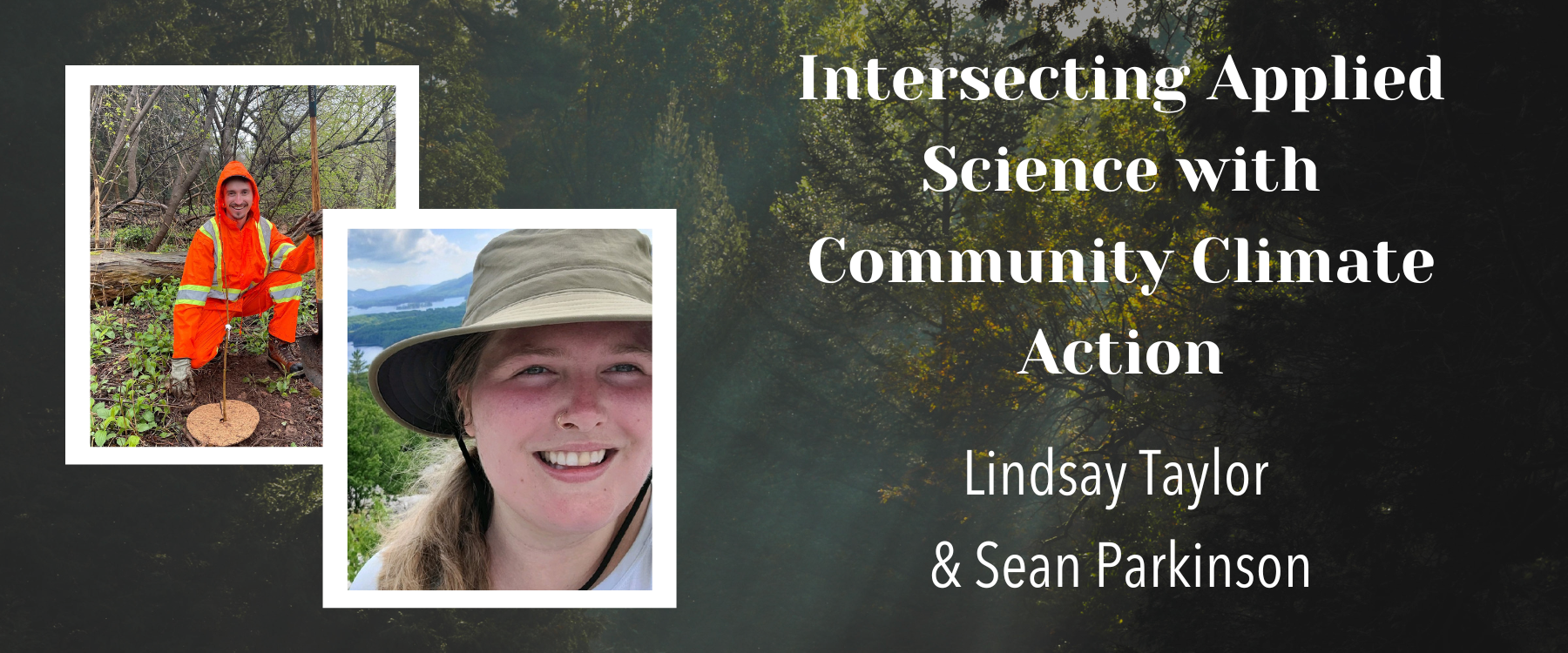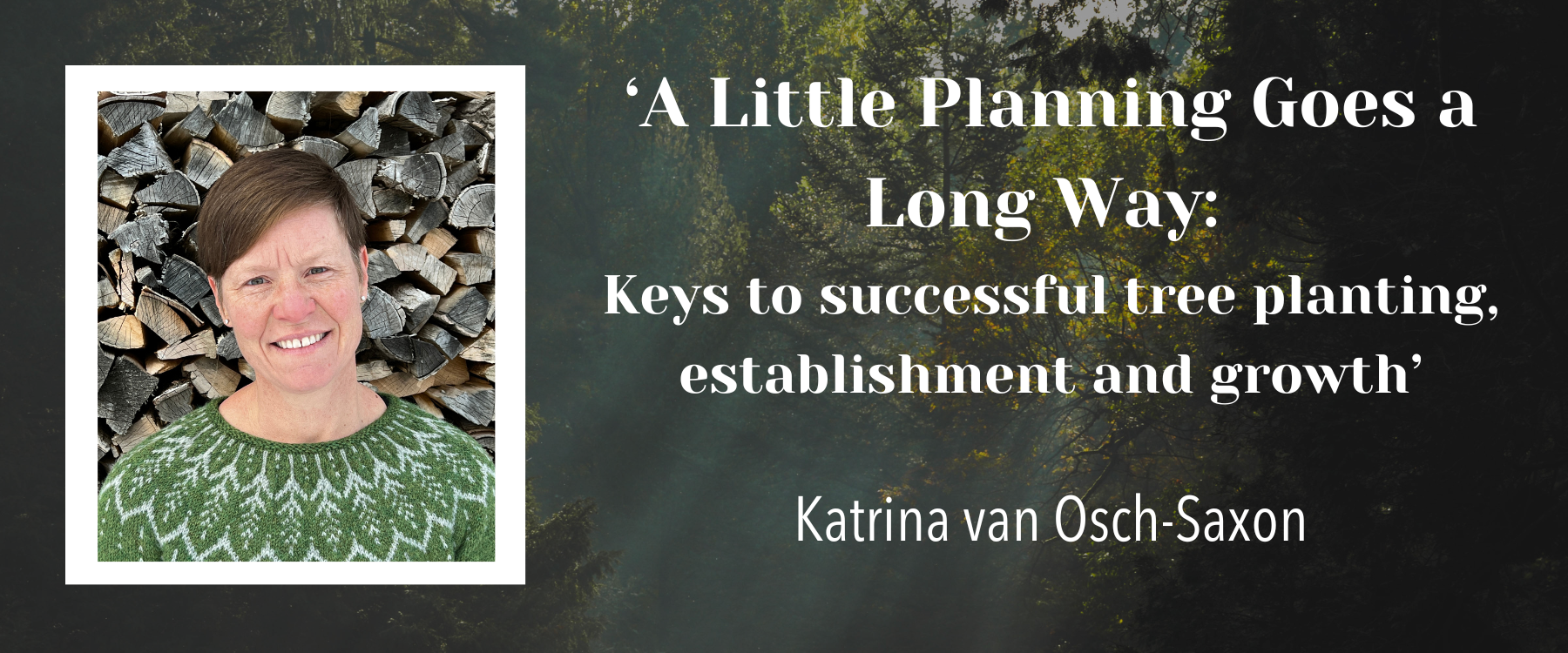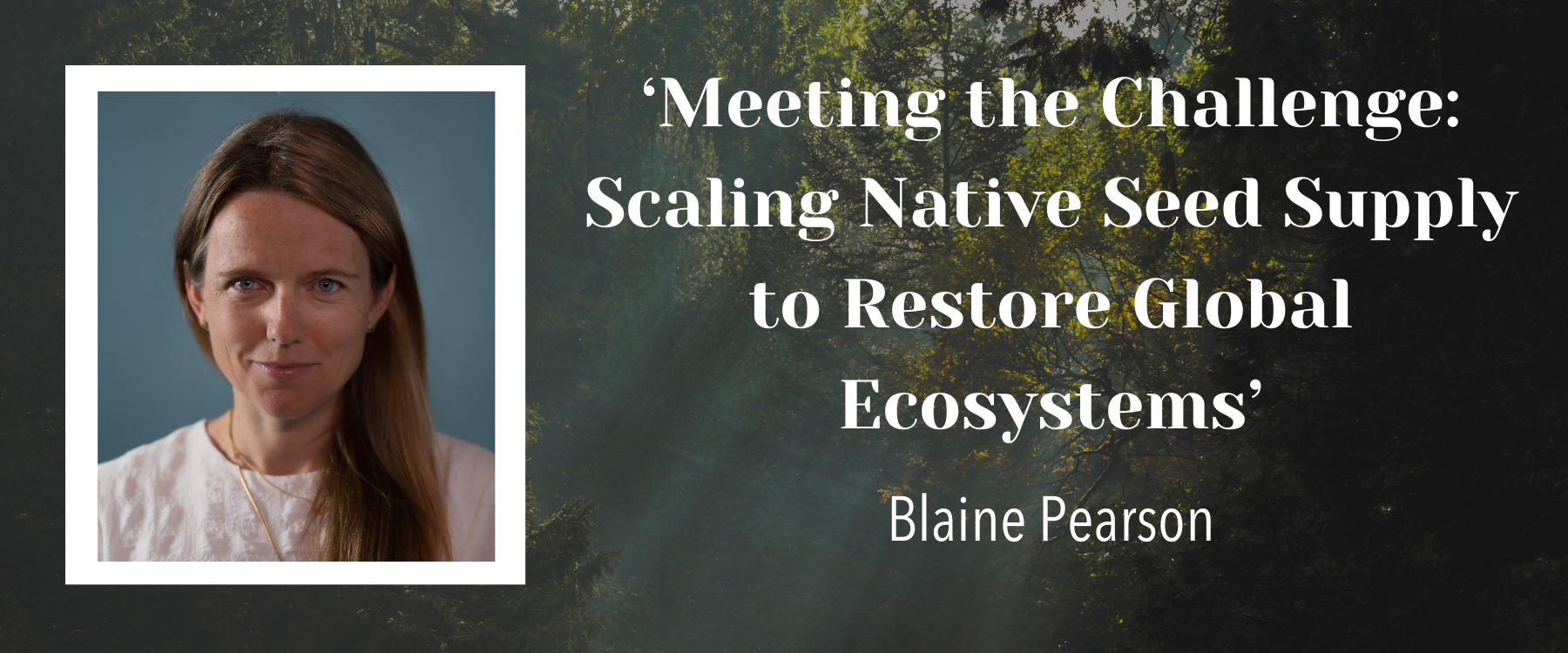Thank you for all who attended and participated!
The Solutions at Scale Virtual Conference, hosted by the Westminster Ponds Centre and ReForest London, is a gathering of leading regional practitioners in the field of urban forestry.
This 2-day virtual conference offers the chance to learn more from arborists, registered professional foresters, municipalities, and environmental organizations who seek to overcome the challenges we face in expanding our urban forests. See our speakers below and learn about their presentation topics, which range from seeds and climate resiliency, to tree-protection by-laws and soils.
- See the Agenda Here!
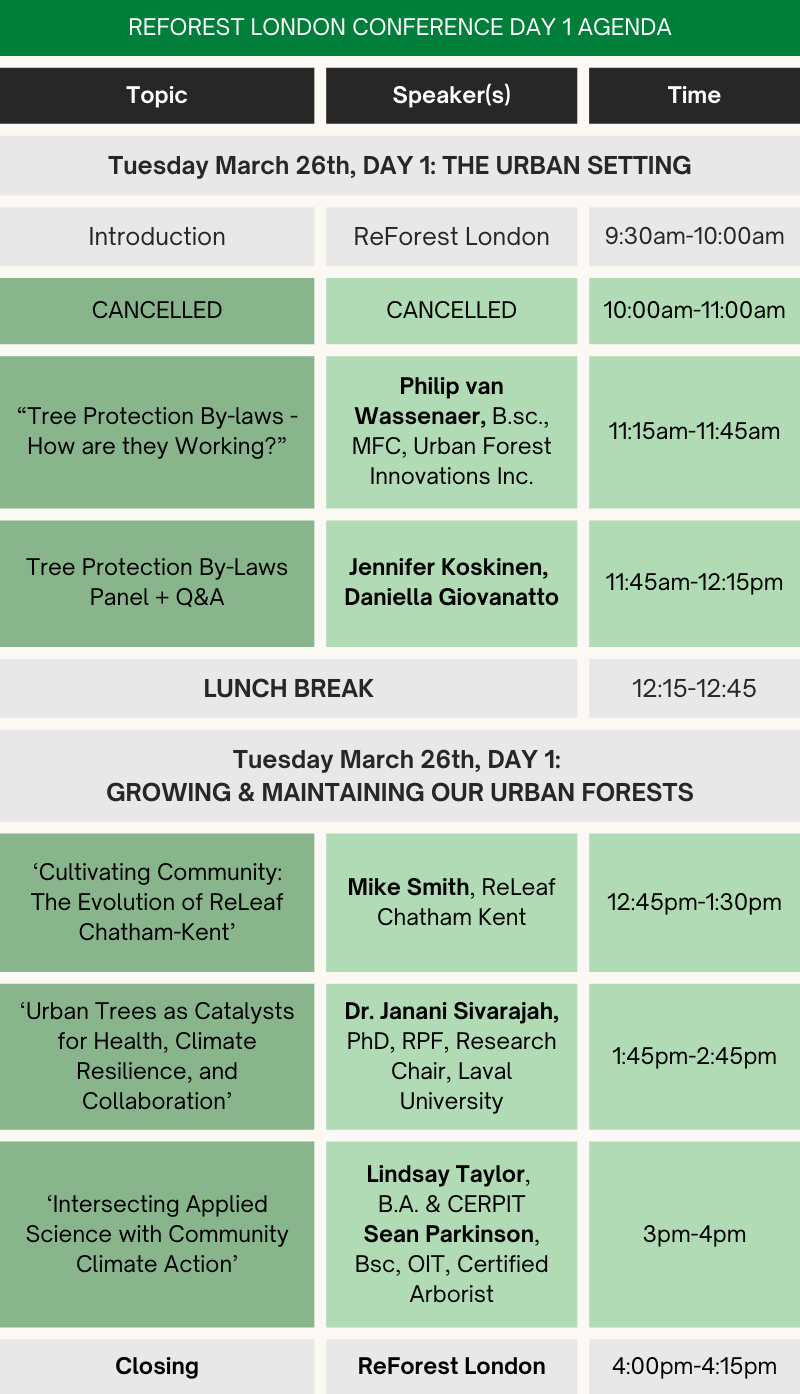

Tuesday, March 26th, 2024
- Session Details
-
This presentation will provide an overview of green areas within urban and peri-urban areas and will touch on their functions and benefits. It will explore the extent of our current green areas, their distribution, underlying environment, soil and vegetation, as well as the overall quality and sustainability of these spaces. It will critically examine the environmental and anthropogenic pressures on urban green areas and their vegetation. Furthermore, the presentation will delve into how we plan, design, and establish green spaces and who is managing and looking after them.
Expanding on the notion of envisioning green, treed and liveable cities, opportunities, strategic spatial planning, and management of green areas will be discussed. The existing challenges and roadblocks in establishing and managing a robust system of green space will be emphasized. The topics covered will be illustrated with examples from Canada, Ontario and other parts of the world.
- About Danijela
-
Danijela is an Assistant professor at the Daniels Faculty, University of Toronto. She holds a B.Sc. and M.Sc. in Forestry (Univ. of Belgrade, Serbia) and a Ph.D. from the University of Toronto.
Her work and research provide real-world solutions and tools that support strategic conservation, restoration, and integrated spatial planning of natural areas in urban and peri-urban landscapes. Her research also includes vegetation monitoring, spatial analysis, and predictive modelling and mapping of the present, past, and future vegetation and plant species distributions. Danijela also leads research related to strategic, multi-purpose forest monitoring and community-based forest stewardship based on the Vegetation Sampling Protocol and Neighbourwoods© protocols.
She teaches undergraduate and graduate courses in Urban Forest Conservation, Green Infrastructure, Landscape Ecology and GIS. She also collaborates with diverse community groups, NGOs, and different levels of government and is a member of the Canadian Urban Forest Network (CUFN) Steering Committee. Before academia, as part of the Ontario government, she worked in applied science and research related to the natural heritage system design, spatial restoration planning, conservation planning, and monitoring of settled landscapes.
- Session Details
-
This presentation will explore the current status of tree protection by-laws in various municipalities and jurisdictions throughout Canada. Examples of by-laws will be presented to illustrate single private tree, ravine and woodlot protection approaches. Specific examples will illustrate emerging trends and best practices around tree by-law regulations and some of the challenges to implementing and administering them. Alternative approaches to tree protection by-laws will also be discussed.
- About Philip
-
Philip van Wassenaer, B.Sc. Environmental Sciences, Master of Forest Conservation, is the principal consultant for Urban Forest Innovations, Inc., which specializes in the preservation, enhancement, and management of the urban forest using a research and science-based approach. He is an ISA Certified Arborist, an ASCA Registered Consulting Arborist, current board member of ASCA, a Past President and Director of the Ontario Urban Forest Council, a 2009 recipient of the ISA True Professionals of Arboriculture Award and a 2022 recipient of the ISAO Maple Leaf Award.
- Session Details
-
This session is a panel on tree protection by-laws and plans, where we will be asking our panelists to give their input and opinions on the challenges and benefits of implementing these important yet sometimes controversial protections. Join to learn more, with an opportunity for questions at the end, and continued discussions in the chat.
- About Jennifer
-
Jennifer Koskinen is the owner of JK Consulting Arborists. She started her tree adventure with her education in Forestry at Lakehead University. From there she worked in Northern – and I mean NORTHERN – Ontario, with the Ontario Ministry of Natural Resources at their Centre for Northern Forest Ecosystem Research. After some years enjoying working outside with the bears and wolves, black flies and mosquitoes…. Jennifer remembered a day where she was working for a short time in the urban forest in New Jersey, USA – and decided to attend Fleming College’s Arboriculture program to focus on trees as a single entity. She took her knowledge of chainsaws and cutting with her for a brief work experience pruning and removing trees. “This isn’t why I got into this,” Jennifer thought to herself with a partially separated right shoulder, and that is when the world of consulting came knocking at her door. Jennifer has been working in consulting since 2008 throughout Southern Ontario, and hasn’t stopped since!
- About Daniella
-
Daniella Giovanatto, OALA, CSLA, is an ISA Certified Arborist, with over a decade of experience in tree management. As a consulting arborist in the private sector, she has has worked on a wide range of projects including infrastructure construction, improvements and development which have resulted in exposure to numerous tree protection by-laws throughout southern Ontario. Daniella also has experience in municipal review of planning applications and has a background as a Landscape Architect giving her a multifaceted perspective to urban forest management.
- Session Details
-
Delve into the inception and evolution of ReLeaf Chatham-Kent, a community initiative dedicated to nurturing forests and wild spaces for a resilient future. Explore how ReLeaf CK has thrived through strong bonds with individuals, community groups, and organizations, collectively fostering a culture of environmental stewardship. Learn about the diverse events, community engagements, and collaborative projects that have sprouted under ReLeaf's canopy. Uncover the synergies that have bloomed between this grassroots movement and other entities, demonstrating the strength derived from a network of sustainable connections.
- About Mike
-
Mike Smith is a dedicated environmentalist and the founder of ReLeaf Chatham-Kent, an organization that is dedicated to preserving natural habitat and promoting the importance of native plant gardening in their community. Mike is also the current President of the Sydenham Field Naturalists and brings a wealth of knowledge and expertise to his work with an Associate Diploma in Environmental Management from the University of Guelph and another in Multimedia Design from Humber College. As an Engineering Technologist, he specializes in GIS, cartography, and spatial analysis and is an avid native plant gardener, hiker, bird watcher, and lover of trees.
Mike leads ReLeaf Chatham-Kent with a focus on raising awareness about the importance of protecting natural resources and advocating for their preservation. With a strong commitment to education, community, sustainability, and advocacy, Mike is a driving force in the efforts to protect and promote the natural environment in his community. ReLeaf Chatham-Kent's work in promoting forest cover in Chatham-Kent was recognized with an award from Lower Thames Valley Conservation Authority in 2021 for their community engagement. With his diverse background in environmental management, multimedia design, and engineering, Mike brings a unique skillset to his work and is dedicated to making a positive impact on the world around him.
- Session Details
-
Urbanization has led to a significant decrease in green spaces, creating substantial environmental challenges. Despite negative perceptions about urban trees, they play a crucial role in enhancing ecosystem health and human well-being amidst a global climate crisis. It is important to acknowledge their value, preserving and expanding urban trees as a fundamental strategy for constructing sustainable, resilient cities.
In this presentation, I draw upon my extensive research, spotlighting the diverse significance of urban trees, from influencing academic performance to cancer prevention, based on collaborations with municipalities and schoolboards in Ontario. I then transition to discuss my current role as the Research Chair of Urban Trees and its Environment at Université Laval, in partnership with Quebec City. Our focus lies in developing innovative tools that integrate trees and urban soils as natural climate solutions, mitigating human-induced and abiotic stressors through GHG mitigation and carbon storage. This discussion delves into the urgent challenges faced by cities, with a specific focus on Quebec City. By closely collaborating with practitioners, industry communities, and government entities, our research lab emphasizes the critical importance of applying scientific knowledge in practical contexts. This session provides a platform to explore the transformative potential of urban trees, highlighting their pivotal role in promoting health, climate resilience, and collaborative urban development. - About Janani
-
Dr. Janani Sivarajah is the Assistant Professor of Urban Forestry and holds the Research Chair on Urban Tree and its Environment in the Department of Wood and Forest Sciences. at Université Laval, in Quebec City. She is a Registered Professional Forester (R.P.F) of the Ontario Professional Foresters Association. She is also an associate member of the Center of Forest Research (CEF). Janani obtained an Honours Bachelor of Science, Master of Forest Conservation, and a PhD in forestry from the University of Toronto. For over eight years, she has worked as a consultant, advisor and professional in Ontario's urban forestry and non-profit sector. Her work crosses disciplines, and she is passionate about building healthy, resilient ecosystems and communities. Most of her work aims to address and assess human anthropogenic impacts on urban forests and soils. Her lab is positioned at the science-society interface, and her work aims to bridge the science-society divide by working closely with practitioners, industry communities, and the government. For more information, visit www.jananisivarajah.com
- Session Details
-
It’s easy to describe the beauty and natural importance of trees, but it has historically been challenging to translate these values into a language that can be appreciated by politicians, businesses, professionals, and commercial property owners.
Initially, our work started with the question, how do we bring more trees downtown? Our small Downtown Business Improvement Area in St. Catharines, which is nestled between Lake Erie and Lake Ontario on the traditional territory of the Haudenosaunee and Anishinaabe peoples, wanted to expand the surrounding urban forest. Through our research, we developed a method for accurately and responsibly measuring and monitoring trees as green infrastructure and natural assets. This method addresses site selection, tree selection, biodiversity considerations, engineering considerations, climate mitigation, and asset appreciation.
This webinar will address the importance of an effective inventorying approach that can help identify, map, and assess trees, to allow cities to properly manage and grow the urban canopy, while quantifying the benefits of every investment.
This work could not have been achieved without citizen scientists and community volunteership. We will explore innovative opportunities such as the upcoming launch of our Adopt-a-Tree program, to highlight why the intersection of applied science and community action is the foundation of effective urban forest management.
For more information about our urban forestry work in Downtown St. Catharines visit: www.MyDowntown.ca/urban-
street-trees - About Lindsay
-
Lindsay Taylor, B.A. & CERPIT, holds a Bachelor of Arts degree from Brock University in Labour Studies with a minor in Psychology along with two diplomas from Niagara College in Business General and Environmental Technician studies and a Graduate Certificate in Ecosystem Restoration. Taylor has been recognized with two major awards including the Niagara College President’s Award for Innovation in Student Learning and Success and the Niagara Peninsula Conservation Authority with an Award of Merit. She is currently a Certified Ecological Restoration Practitioner in Training and member of the Disciplinary Review Committee through the Society for Ecological Restoration (SER). and an Associate Member of the Ontario Association of Engineering Technicians and Technologist (OACETT) where she currently serves as an executive member of the OACETT Niagara Chapter. Lindsay volunteers her time as a leader in the Niagara Urban Stewards, is an active member of ArborSTC, and is a Volunteer Corps member at Land Care Niagara.
- About Sean
-
Sean Parkinson, BSc, OIT, & ISA Certified Arborist, started his tree journey at McMaster University, removing invasives and censusing a nearby Carolinian forest. After receiving a Bachelor’s Degree in Biology & Environmental Sciences, Sean completed post-graduate education in Environmental Management & Assessment at Niagara College, and Urban Forestry at Fleming College. In 2022, Sean began work on a comprehensive Urban Street Tree report with the St. Catharines Downtown Association alongside Lindsay Taylor, and has since completed projects with the Niagara Peninsula Conservation Authority, the Royal Botanical Gardens, ArborSTC, and the Niagara Urban Stewards. Sean is committed to reforestation and afforestation efforts that can help green urban spaces and provide services to both communities and the environment.
Wednesday, March 27th, 2024
- Session Details
-
With a foundation built on gene conservation principles, practitioners can work to augment our forests’ genetic diversity to improve resilience through sustainable forest management and informed seed sourcing in the face of climate change. While typically undervalued, seed collection is a key vector for improving the gene pool for climate adaptation. Collecting high quality, source identified tree seed however is not an easy task and comes with just as many challenges as there are opportunities. During this talk we will review genetic diversity- the foundation of forest resilience, how climate change may affect our forests, and why we need to invest in creating sustainable sources of high-quality tree seed for the future. We will also review various tools we have to assist with adaptation planning and seed transfer like the Ontario Seed Transfer Policy, Tableau tool, and forest vulnerability tools.
- About Kristen
-
Kristen's formal training in horticulture brings a diverse set of skills to the Forest Gene Conservation Association team including growing a variety of native plants from seed and collecting, treating, storing, and testing seed to ensure optimal quality. Kristen began working with the FGCA in 2018, prior to this, Kristen worked in the nursery industry growing native plants from seed and producing seed for large scale restoration. As Seed and Climate Change Program Manager, she works with the team and partners to develop strategies and projects for integrating climate adaptation into practice. Her work also includes managing Seed Expertise programing, running the FGCA’s Certified Seed Collector courses, and managing southern Ontario’s White Pine seed orchards and Assisted Migration Trials.
- Session Details
-
Tree planting and establishment in urban landscapes can be challenging, but with the use of excellent tools and resources supported by science, we can work towards growing a more resilient urban forest. By pairing tree species with site characteristics, following established planting guidelines, and developing a commitment to post-planting care, urban trees can thrive in our harsh urban environments.
- About Katrina
-
Katrina is the Coordinator of the Forestry Technician Program at Fleming College and teaches across the Urban Forestry, Forestry, and Arboriculture programs. She holds a BSc from the University of Guelph, is a Certified Arborist, and takes an ecosystem approach to teaching, helping students build connections with trees, each other, and the environment around them. Katrina is also focused on building an inclusive workforce, raising awareness about career opportunities for underrepresented people, and has facilitated several events to showcase different career paths for women interested in pursuing a career in the green industry.
- Session Details
-
Record forest fires, monumental government programs, carbon markets and corporate net zero investments are spiking demand for native, source-identified seed. But in order to do that we must scale the ability to identify, forecast, collect and clean seed. Join this talk to learn about hidden opportunities and ecological innovation that are modernizing our ability to meet the challenge.
- About Blaine
-
For the last two decades, Blaine has brought entrepreneurial drive and a solutions-focused approach to complex communications and environmental challenges.
As CEO of Wilder Climate Solutions, she lead integrated technology and product development initiatives that drive impact in global ecological restoration and environmental conservation.
Their technology-based seed collection and traceability platform, Squiirrel was recently recognized as a Top Global Innovation by the World Economic Forum for the Trillion Trees: Restoration at Scale Challenge.
She is a Fellow of the Royal Canadian Geographical Society and is focused on bringing together powerful players to deliver pioneering, scalable and sustainable solutions for our planet.
- Session Details
-
Carolinian Canada will introduce the Southern Ontario Seed Strategy and outline the journey to prioritize actions to scale up the supply of native plants and seeds and set a course for restoration and stewardship to reconcile people and landscapes using a two-eyed seeing lens. This presentation will also highlight key findings from Carolinian Canada's newly launched report The Economy of Hope: Growing Healthy Landscapes in the Greater Golden Horseshoe in Partnership with Native Plants, which documents challenges, necessary actions, and key opportunities to build a robust and ethical native seed supply chain.
- About Jennifer
-
Jennifer Nantais helps foster connections between science, community and business for an equitable, sustainable future in the spirit and practice of reconciliation. As the Program Specialist, she works to protect and promote healthy ecosystems and track impact through the In the Zone program; strategize to preserve native plants and seeds through the Southern Ontario Seed Strategy; and help lead the way in a restoration economy through the award-winning Conservation Impact Bond. Her work seeks to strengthen relationships between native plants, biodiversity, the land, and each other.
- About Siobhan
-
Siobhan Mullally is passionate about creating positive systemic change for people and ecosystems in an equitable way. As the Network Specialist with Carolinian Canada, she delivers strategic communications and outreach to connect the network to Carolinian Canada’s initiatives, including the Southern Ontario Seed Strategy, Conservation Impact Bond, and In the Zone. Drawing from experiences in environmental communications, ecology, outdoor education, and research, she aims to use her interdisciplinary background to inspire and connect groups around shared goals for nature.


